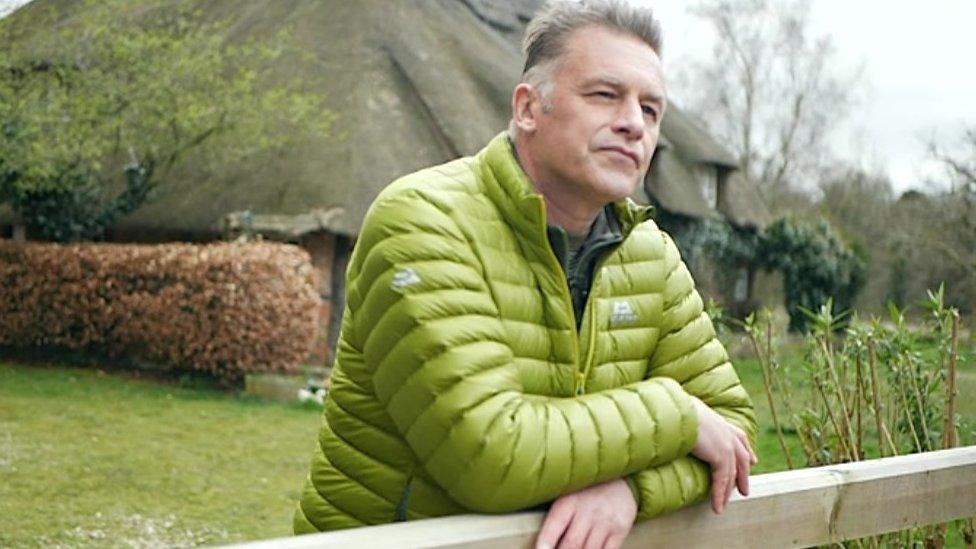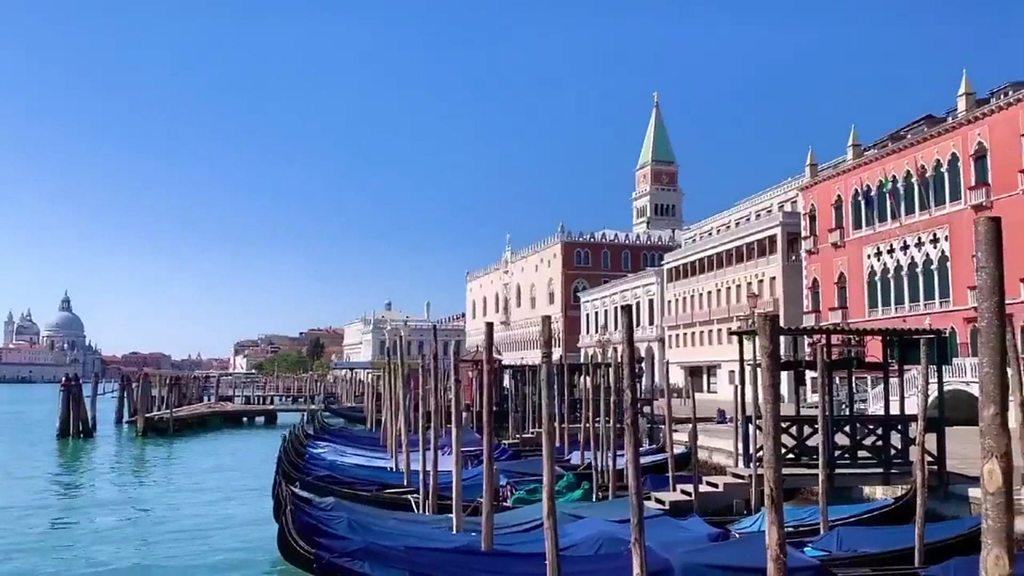Coronavirus: Packham warns of impact on environmental issues
- Published
Naturalist Chris Packham on the impact Covid-19 may have on nature
The coronavirus outbreak could set back efforts to tackle environmental issues by years, TV naturalist Chris Packham has warned.
He said a preoccupation with fighting the pandemic could move climate change down governments' agendas.
The presenter said the outbreak could affect natural landscapes with nature reserves going unmaintained.
But he added it could give wildlife a "respite" and urged people to "engage with nature".
Packham warned "another deadly effect" of the virus could be a failure to deal with climate change and biodiversity loss.
"If this turns out to be an enforced break in dealing with these issues and we lose the impetus we have gained, that could set us back years. Climate change isn't going away," he said.
The UK is due to host the COP26 climate change conference in Glasgow in November, although the foreign secretary Dominic Raab said on Thursday there was "no cast iron guarantee" it would go ahead.
'Difficult and terrible'
Springwatch host Packham said he was minimising social contact at his New Forest home and was "gravely concerned" about his 87-year-old father who was self-isolating.
He said conferences and meetings he was due to attend had been cancelled and it was "not the time" for confrontational campaigns.
"We can't think the natural world won't be impacted - farmers may not be able to get into the fields, if people aren't maintaining nature reserves they will decline in quality and without surveys we'll lose touch with what's going on in the natural world," he added.
"This will be a difficult and terrible time but we have to come out of it having learned lessons and changing our practises.
"We will ask ourselves about how we do business and social interactions - do we need as many jets in the sky? We can't allow ourselves to be this vulnerable again."
He said there could be a "respite for nature" with lower pollution levels, as experienced in Venice, and drew parallels with the foot and mouth crisis of 2001.

Chris Packham said people in isolation could turn to nature for "solace and joy"
"It was a very different crisis but in the New Forest the dog walkers behaved responsibly and disturbance on ground-nesting birds was much reduced and they had the best breeding season for years and years."
He encouraged people to turn to nature for "solace and joy" if they were self-isolating.
"It's an opportunity - it's spring, learn about birdsong, flowers are coming up - we know its good for our physical and mental health."
With Chinese markets selling live animals considered a potential source of diseases that are new to humans, Packham called for a permanent end to the trade.
"Surely this will be a point where we think globally to protect ourselves as well as the wildlife - there could be some long term blessing for wildlife."

A SIMPLE GUIDE: What are the symptoms?
GETTING READY: How prepared is the UK?
MAPS AND CHARTS: Visual guide to the outbreak
PUBLIC TRANSPORT: What's the risk?

- Published18 March 2020
